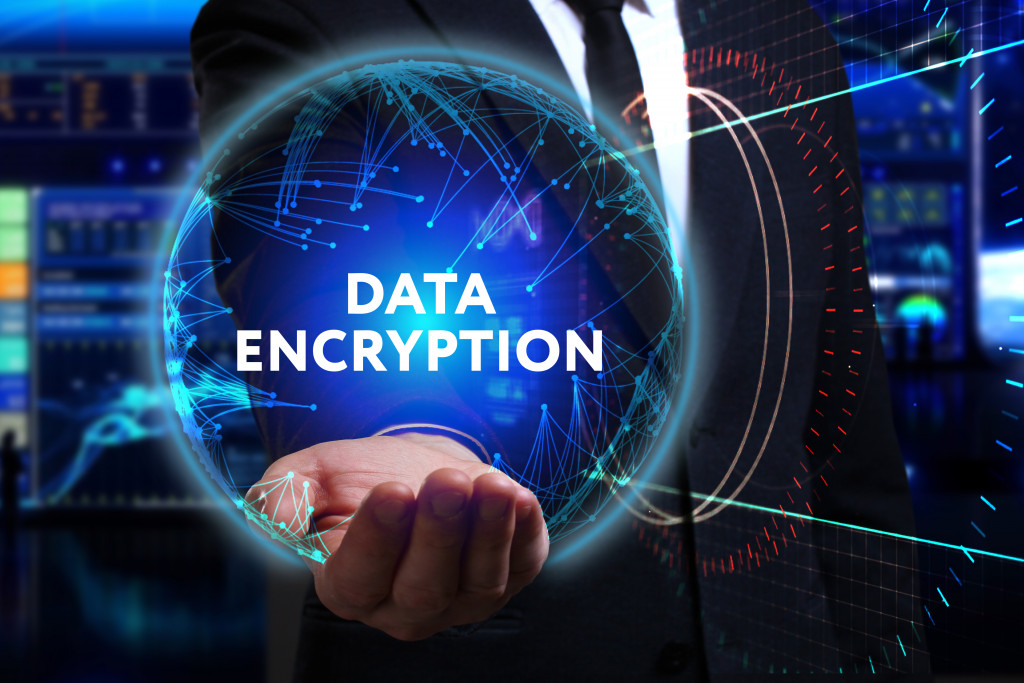We live in a data-driven world where technology plays an increasingly significant role in collecting, managing, and sharing personal information. To ensure the responsible use of all this data and meet the new regulations, businesses must implement effective data privacy compliance procedures. The good news is that technology can provide a wide range of tools to help companies confidently manage their data and stay compliant. Here are four ways technology can help you achieve data privacy compliance.
1. Automated Security Systems
Automated security systems allow businesses to monitor their networks 24/7 for potential threats or breaches, keeping all private user data secure. With automated security systems, companies can quickly detect any issues and respond accordingly to prevent further damage.
Automated security systems provide an extra layer of protection and enable businesses to automate specific processes that would otherwise be manual and time-consuming. For example, automated security systems can be programmed to detect any suspicious activity on the network and automatically trigger preventive measures such as restricting access or disabling user accounts. This allows companies to take immediate action and protect their networks before any potential damage occurs.
In addition to being an excellent asset for proactive security, automated security systems are also incredibly useful in post-incident investigations. After any breach or attack, the system can help businesses identify and locate the source of the problem within minutes—instead of hours or days—allowing them to respond quickly and minimize potential damage.
2. Cloud Storage Solutions
Utilizing cloud storage solutions like Amazon S3 or Microsoft Azure enables companies to store large amounts of their customer’s personal information without fear of it being compromised while offering access to authorized personnel only. Plus, such services often come with comprehensive encryption protocols and other security features that make them well-suited for protecting sensitive data from prying eyes.
Moreover, cloud storage solutions also offer companies a great way to back up important business data. An off-site repository of critical files can provide much-needed protection in case of catastrophic events like natural disasters or cyber-attacks. Additionally, many cloud storage providers offer automated backup and restore functions that make the process even easier.
Cloud storage solutions offer better scalability and flexibility than on-premises data centers. With cloud services, you can quickly scale up or down to accommodate changes in your business needs without investing in additional hardware or software. That makes it ideal for businesses that experience rapid growth or seasonal changes.
3. Data Privacy and Encryption Software

Data encryption software is one of the best ways to keep confidential customer information safe from hackers and other malicious actors. By encrypting your company’s sensitive files and databases with specialized algorithms, you can be sure that no one will be able to gain access without proper authorization keys or passwords.
Data encryption software is also a key component of data privacy compliance. It ensures that your company’s confidential information is not accessed by unauthorized personnel and helps prevent accidental disclosure of sensitive material to anyone outside the organization. With the increasing complexity of data privacy laws, companies must ensure their compliance with these laws by using secure data encryption solutions.
Compliance software for data privacy helps by automatically encrypting customer data and ensuring that it meets the regulations outlined in data privacy laws. It also provides detailed reports of all encryption activities, so you can quickly identify any anomalies or breaches. Additionally, many solutions offer comprehensive audit trails that allow companies to track their compliance progress over time. This compliance software can also help companies meet their obligations to protect customer data by flagging any suspicious activities or breaches.
4. User Access Controls
While some external security measures are necessary to guard against unauthorized access attempts, user access control policies are equally important in achieving data privacy compliance requirements within your organization. Establishing robust user access controls lets you limit employee access to sensitive business documents and services according to their roles within the company — meaning only those who really need it will be given access to valuable company assets like customer records or financial transactions.
User access control policies can also help protect your business from insider threats, such as employees sharing data with unauthorized entities or malicious actors. By limiting access to critical resources and monitoring user activity closely, you can identify any suspicious behaviors that may indicate a security breach. Additionally, implementing two-factor authentication (2FA) for accessing protected systems further strengthens your security posture by providing an extra layer of verification before granting user access.
It is also essential to regularly review and update user access control policies to remain relevant and effective. This may involve periodically auditing your system for unauthorized or outdated access rights and revoking privileges from employees who no longer need them. Finally, providing timely security awareness training to your workforce can help ensure that they understand the importance of following data privacy protocols and are aware of the consequences of not adhering to them.
In Closing
By leveraging the latest technological advances and taking advantage of automated processes available today, companies can significantly reduce the risk associated with dealing with large amounts of consumers’ personal information. With these measures in place, organizations have a better chance of staying ahead of any potential challenges posed by changing laws or regulations governing the collection.
